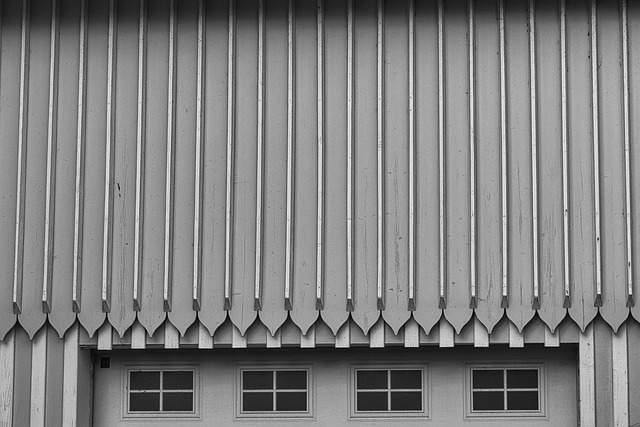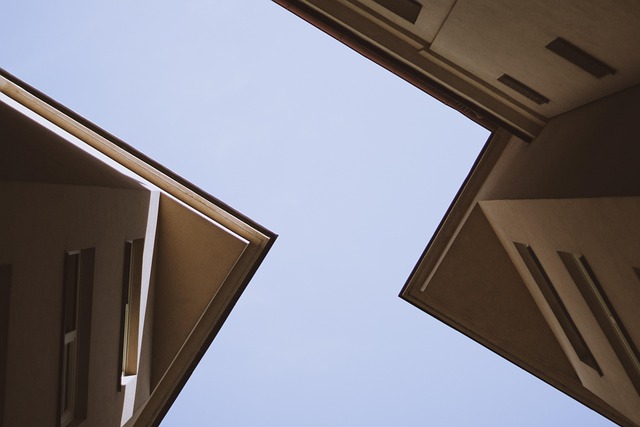Roofing warranties are essential for commercial properties, offering protection against defects and ensuring high-quality workmanship from local roofing companies. These warranties cover materials and craftsmanship for 10 to 30 years, protecting businesses from costly repairs. Local expertise provides tailored coverage, swift claims processing, and knowledge of regional risks. Business owners should prioritize policies with comprehensive repair/replacement coverage, minimal exclusions, and reputable insurers. Claiming a warranty involves understanding terms, promptly documenting issues, and collaborating with the local roofing contractor for repairs or replacements. While warranties offer protection, they have limitations regarding installation, maintenance, weather events, structural damage, and modifications. A robust warranty enhances client satisfaction, boosts trust, and fosters positive word-of-mouth referrals for local roofing companies.
In today’s competitive business landscape, protecting your commercial property is paramount. A solid roofing warranty isn’t just about peace of mind; it’s a strategic decision that boosts customer satisfaction and preserves your business’s reputation. This guide explores the crucial role of warranties, highlighting the expertise of local roofing companies in providing comprehensive coverage. We’ll navigate types of warranties, key components to consider, and essential steps for claiming them, empowering you to make an informed choice for your commercial space.
Understanding Roofing Warranties: What They Cover and Why They Matter for Businesses

Roofing warranties are an essential aspect of any commercial roofing project. They serve as a safety net, providing protection for both business owners and local roofing companies. When it comes to understanding roofing warranties, it’s crucial to grasp what they cover and why they’re vital for businesses.
A typical roofing warranty guarantees the quality of materials and workmanship used in the roof’s installation or repair. It ensures that if any issues arise within the covered period—often ranging from 10 to 30 years—the local roofing company will fix or replace faulty components free of charge. This protection is particularly important for businesses as it shields them from unexpected, costly repairs and maintains the integrity of their property. Moreover, a solid warranty can enhance trust in the chosen local roofing company, demonstrating their commitment to delivering high-quality services and peace of mind.
The Role of a Local Roofing Company in Providing Comprehensive Warranty Services

A local roofing company plays a pivotal role in offering comprehensive warranty services, ensuring peace of mind for business owners. These companies are strategically positioned to understand the unique needs of local businesses and provide tailored solutions. With their deep roots in the community, they often have extensive knowledge about local building codes, weather patterns, and regional climate changes, all of which can impact roofing materials and installations.
This local expertise translates into better warranty management. They can offer extended warranties or specialized coverage plans that cater to the specific risks faced by businesses in their area. Moreover, a local roofing company’s proximity allows for faster response times during warranty claims, minimizing downtime and potential losses for affected businesses.
Types of Roofing Warranties: Material, Installation, and Extended Coverage Options

When it comes to protecting your business’s investment in a new roof, understanding the various warranty options is crucial. A local roofing company often offers three primary types of warranties: material, installation, and extended coverage. Material warranties are provided by the manufacturer and guarantee the quality and durability of the shingles or roofing materials used. These warranties typically cover defects in materials, such as leaks or damage caused by manufacturing flaws.
Installation warranties, on the other hand, focus on the craftsmanship involved in installing the roof. They ensure that the roofing work is performed correctly, according to industry standards, and can cover issues arising from improper installation, like poor sealing or misaligned shingles. Extended coverage options provide additional peace of mind by extending the warranty period beyond the standard coverage. This type of warranty might include protection against unforeseen circumstances like extreme weather events or changes in local building codes that could affect the roof’s longevity.
Key Components to Look for in a roofing Warranty Policy for Commercial Properties

When choosing a roofing warranty policy for your commercial property, there are several key components to consider. Firstly, ensure the policy covers both repair and replacement costs for the duration of the warranty period. This should include materials and labor, with clear stipulations on what constitutes a valid claim. Look for a local roofing company that offers policies with minimal exclusions, ensuring peace of mind in case of any unexpected roof issues.
Additionally, verify the reputation and financial stability of the insurance provider to guarantee their ability to honor the warranty. Clarify the process for filing claims and getting approvals, as well as response times for repairs or replacements. A comprehensive policy should also include provisions for handling disputes, providing a clear avenue for resolution if needed. Remember, a robust roofing warranty is an investment in your business’s future protection against costly roof damage.
How to Choose the Best Roofing Warranty for Your Business Needs

When selecting a roofing warranty for your business, it’s crucial to consider several factors specific to your needs and goals. Start by evaluating the type of roofing material used in your commercial property. Different materials come with varying warranty options, so choose one that aligns precisely with your roof’s composition. Consult with your local roofing company to gain insights into the typical issues associated with your area’s climate and environmental conditions, as warranties should cater to these potential challenges.
Next, assess the level of coverage offered by different warranties. Look for comprehensive policies that not only cover repairs but also replacement costs. Ensure the warranty period is sufficient for your business’s longevity, considering factors like peak seasons for roofing work and any expected structural changes in the future. Prioritize warranties from reputable manufacturers or insurers with a proven track record in commercial roofing to guarantee reliability and peace of mind.
Claiming Your Warranty: A Step-by-Step Guide for Smooth Process

Claiming your warranty with a local roofing company should be a straightforward process, ensuring peace of mind for business owners. Here’s a step-by-step guide to help navigate this procedure smoothly:
1. Identify Your Warranty: Begin by reviewing the terms and conditions of your roof’s warranty provided by the local roofing company. Understand what is covered, the duration, and any specific requirements for claiming. This information is usually detailed in the contract you signed upon installation.
2. Document Issues Promptly: Should any issues arise with your roof, such as leaks or damage caused by severe weather, promptly document them. Take photos of the affected areas and keep records of all repairs carried out. If the problem persists, it’s important to notify the roofing company immediately to avoid any delays in claiming.
3. Contact Your Local Roofing Company: Reach out to your local roofing contractor with your concerns. They will provide specific instructions on how to proceed with the claim. Typically, this involves submitting a written notice detailing the issue and attaching supporting documents like photos and repair estimates from qualified professionals. The company will then assess the damage and determine if it’s covered under the warranty.
4. Collaboration for Resolution: Once your claim is approved, work closely with the roofing company to arrange any necessary repairs or replacements. Keep open lines of communication to ensure a swift resolution, ensuring your business premises remain protected under the terms of your warranty.
Common Exclusions and Limitations in Roofing Warranties: What Businesses Should Know

Roofing warranties are designed to offer protection to businesses, but it’s crucial for entrepreneurs to understand common exclusions and limitations. Many standard warranties don’t cover issues arising from improper installation or maintenance by anyone other than the local roofing company that performed the work. Additionally, extreme weather events like hurricanes, earthquakes, or heavy snowfall often fall outside of warranty parameters, as do problems resulting from structural damage or poor drainage systems.
Further exclusions may include labor costs for repairs not covered under the warranty and any modifications made to the original design or structure. Businesses should also be aware that warranties typically have specific timeframes within which claims can be made, and they vary in duration depending on the provider and type of roofing material used.
The Impact of a Solid Roofing Warranty on Customer Satisfaction and Business Reputation

A robust roofing warranty is a powerful tool for any local roofing company to enhance customer satisfaction and fortify its business reputation. By offering comprehensive coverage on installations, repairs, and replacements, businesses can instill trust in their clients. When customers invest in a new roof, they expect it to withstand the elements and provide many years of reliable protection. A solid warranty reinforces this expectation by demonstrating the local roofing company’s commitment to quality and long-term satisfaction.
With a robust warranty in place, clients are more likely to view the roofing business as a partner rather than just a service provider. This shifts the focus from future repairs or replacements to the initial investment, knowing their roof is protected. A satisfied customer base leads to positive word-of-mouth recommendations, attracting new clients and fostering loyalty among existing ones. Thus, a quality roofing warranty becomes an essential marketing tool for any local roofing company aiming to thrive in a competitive market.
